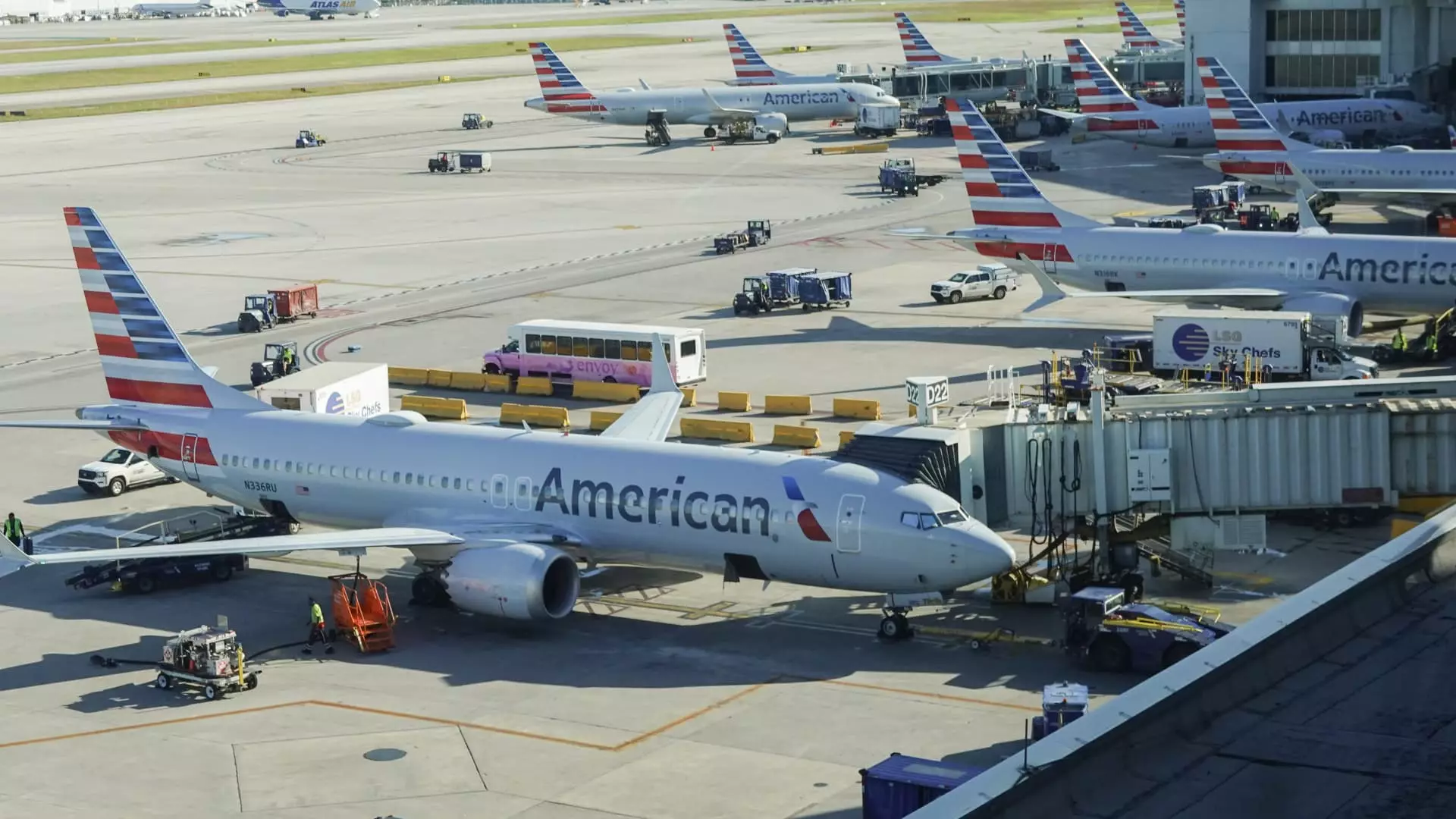On Tuesday morning, American Airlines experienced a significant operational hiccup that briefly grounded its domestic flights due to a technical malfunction. This incident occurred during one of the busiest travel seasons of the year, as many airlines were bracing for a surge in passenger demand driven by the upcoming holiday festivities. By 7:55 a.m. ET, the airline had resolved the issue and lifted the temporary ground stop, which had impacted flights for less than an hour.
The disruption stemmed from a network hardware failure linked to DXC Technology, a vendor responsible for maintaining the airline’s flight operations systems. This system handles vital functions necessary for flight readiness, including managing crucial data such as an aircraft’s weight and balance—information indispensable for the safe departure of any flight. American Airlines took to the media, issuing a statement to assure customers that the issue had been addressed and operations had resumed, while also extending an apology for the inconvenience caused.
Ground stops, though disruptive, are a common practice within the aviation industry, often enacted to prevent airport congestion during unanticipated events. The Federal Aviation Administration (FAA) confirmed that American Airlines had initiated the ground stop to mitigate the impact on flight operations, showcasing the proactive measures taken by airlines during such unforeseen circumstances.
The recent incident sheds light on the vulnerabilities present within modern airline operations, particularly related to the technology that underpins them. Airlines, including American, have faced scrutiny following previous operational failures, highlighting the fragility of multi-faceted technological ecosystems. Events such as the major disruptions faced by Southwest Airlines during the 2022 holiday season and Delta’s recovery from a CrowdStrike cybersecurity event in the summer have illustrated how deeply interconnected and dependent the industry has become on its technology infrastructure.
These ongoing challenges accentuate the need for airlines to bolster their systems and ensure robustness, particularly as they navigate annual peaks in passenger volume during the holidays. With the continuing evolution of technology and the increasing reliance on it for day-to-day operations, airlines must strike a balance between efficiency and risk management.
As travel demand rebounds and the holiday season approaches, American Airlines and its competitors are tasked with ensuring that operational logistics run smoothly. While the recent technical glitch did not lead to any cancellations nor a prolonged disruption, it certainly serves as a stark reminder of the unpredictability of air travel and the potential ramifications for both airlines and passengers. Moving forward, the industry will need to prioritize not only technological advancements but also resilience planning to safeguard against future disturbances, ensuring a smooth and enjoyable travel experience for all.

Leave a Reply